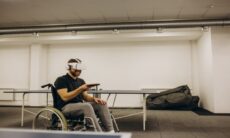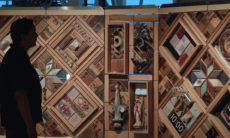Davenport takes its place among the very first US universities to incorporate virtual reality (VR) technology for enhancing education for remote learners.
Davenport University is revolutionising how its online students receive lessons by creating a depth of space through virtual reality software. It is the first university in the state of Michigan to incorporate an innovative new platform to replicate the environs of a traditional classroom. This is achieved with the help of an online community.
Dr. Richard J. Pappas, Davenport University President, revealed that it has a two-decade history of presenting both graduate and bachelor programs online. He explained this as the reason why the institution is prepared to roll out newer technology-powered online courses to generate a revolutionary experience for both students and professors, especially at the time of a major global pandemic.
Davenport has used VirBELA, a virtual reality application that functions as a virtual campus to bring it’s VR classroom vision to life. The software transforms the approaches of how businesses and educational institutions meet the requirements of people they serve online.
Brian Miller, the global campus Dean at Davenport University remarked that its staff members were running pilots of the VR software almost a year back. He revealed that it was first incorporated to offer a more prominent sense of unity to the online learning community, whilst adapting the college experience for learners across all disciplines. After the platform was introduced, Davenport University has used it as a virtual classroom for some online classes. The system has also been used as a team management setup for the university’s remote staff members.
Jeff Wiggerman, director of instructional technology and delivery systems, Davenport University, expressed that both the staff members and students liked the flexibility of the software, along with the real-life interactivity replicated by it. Wiggerman continued that the virtual space continues to exist similar to a physical setting, even after participants exiting the software. According to him, this facilitates a community environment for faculty, students and staff.
The new offering is giving users a set of distinct features and experiences, which cannot be recreated through conference calls and conventional video chat. These include features such as sticky notes that can be hung on the wall for note-taking, personified avatar representations of students, a TV for slide presentation display and safe zones for interactions.
VirBELA has acknowledged the university’s initiative as an innovative way of utilising cutting-edge VR technology. It had requested Wiggerman and Miller to virtually share their learnings during last October’s annual press conference.
Davenport University has plans for introducing the software as a part of its online bachelor’s degree programme for health information management. Simultaneously, the institution will seek out ways in which the software can be used extensively. The first virtual graduate fair by the university is set to be held on March 31. It will feature the university’s college representatives ranging from health, business, and technology, along with career services and admissions.










